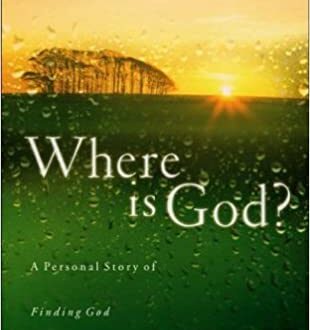All three approaches are rooted in a theories about how we come to know what is good or bad.
Consequentialism is based on what we can know through experience. For example, perhaps if we can know, through research, that people feel happier when x, then x is good. In our contemporary context science leads the way, especially social science, in determining what produces desired results.
Duties are generally rooted in intuition or ideas. If we can define what, for example, “justice” is, then we can derive certain duties from the concept. Duties often have their roots in ideals like equality, liberty and justice.
Virtues or character ethics are rooted in communities of people who share a view of the nature of the human being. We should, according to the virtue ethicist, act according with the kind of thing we are. “What is the human being?” and “how can the human being flourish?” are questions that produce an ethic. For example, if one believes the human being to be rational and capable of truth, then being a truth-teller is a virtue of such a creature and being a liar is a vice.
However, in recent decades the character of a human–its virtues and vices–have not been determined by a clear picture of the nature of humanity. Instead, our current culture holds to a kind of existentialism – there is no defined nature (and if there is, we do not know what it is). This has produced an underlying question mark most commonly seen in slogans like “be who you want to be!” So virtues have fallen to the individual or to the community to determine for themselves without external authority.
Contemporary Ethical Pie (the term pie is not a technical term. It just describes the form of the following diagram):
Most people do not attempt a consistent approach to ethics, rather we cobble together ethical principles from all three approaches.
The debate over marriage gives us a clear example of all three approaches. The fulfillment of the desires of many who presently cannot marry is fulfilled by the gaining of the material rights and privileges found in marriage (a consequential argument). We should attain to the ideal of equality for all human relationships (the duty argument). And it is up to us to decide the nature of the human being and what relationships are most virtuous (the existential character argument). All three components are taken up in the contemporary debate and deployed to great effect.
What, then, might be an alternative Christian ethical pie?
First, the consequence we seek is the Glory of God. Paul writes, “so, whether you eat or drink, or whatever you do, do all for the glory of God” (1 Cor 10:31). The regenerate desire of the Christian is to please God. This is a consequence of an action, the best outcome for our decisions.
Second, the duty we abide in is the obedience to God’s commands in scripture. The nation of Israel was given the Mosaic law and Christians are given the law of Christ. Obedience to Christ is the condition of salvation from impending judgement (Matt 7:24-27).
Finally, our virtues are rooted both in the character of God and the revealed nature of human beings. We are exhorted to be Holy as God is Holy (1 Peter 1:13-16). Our nature, as regenerate human beings, is revealed to us in scripture. This is the idea that James gives us. He says that the fool sees himself in a mirror and then goes away and forgets what he looks like. What he has seen in the mirror is his nature according to the word of God. To forget this is to act as if he is not those things, that he can make himself in another image.
A knowledge of human nature is not limited to a knowledge of regenerate human nature. The creation mandate is not only for the redeemed. Human beings, being made in the image of God, have consciences and are aware, even though suppressing this truth, of God’s disfavor toward their sin. But they are also aware of the moral nature of their actions. And God, by his grace, furthers their good and restrains evil.
Christian Ethical Pie:
One can see the conflict between the two positions. They are not generated by a conflict in ethic alone, but in what the two positions are rooted in, their theories of knowledge. Christian ethical systems depend on an external, revealed authority, a judgement call from outside the human community.
As Albert Mohler writes, “Moral judgment under girds the entire structure of laws and is necessary for the rational structure of any significant statute. The idea that our laws can stand independent of moral foundation is senseless” (italics mine). In other words, moral judgement presupposes a judge. I take Mohler to be saying that moral underpinning is not moral law per se but a moral judge, a person who determines something to be right or wrong. In other words, something is right or wrong by virtue of it being judged to be so. This, I assume Mohler to be saying, is reliant upon an ultimate judge, God, and an ultimate judgement by God. This judgement of God is what makes law possible and without it law itself becomes a senseless concept.
Furthermore, in discussions over ethical questions, human beings have deeply felt needs to please someone, to obey someone and to live like someone. The problem is sin, our propensity to set up alternative things to please, obey and emulate.
In Christ we see the one human being who pleased his Father (John 8:29), obeyed his Father (Luke 22:42) and emulated his Father (John 10:30). And on our behalf Christ took up human flesh and lived the perfect life, free of sin, yet he also took up human sin and paid the price for it, the price we should have paid.




